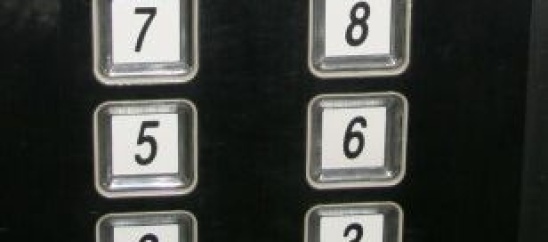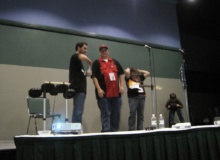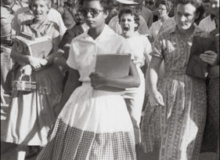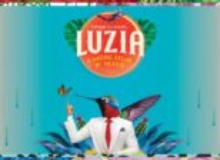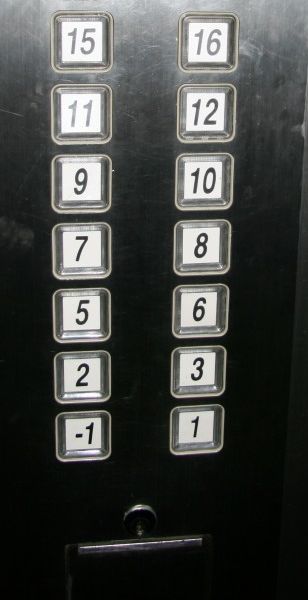 |
| An elevator with no 13th floor button |
We all know someone who is superstitious about Friday the 13th. But did you know that businesses lose an estimated $800 million on Friday the 13th because those superstitious folks don’t do things like ride airplanes or make large purchases (like a house or a new car), and stock trading slows down?
How did Friday the 13th get its bad rap? Turns out it’s all the fault of the Norse Gods, Jesus and the Ancient Romans. The only thing missing is the Freemasons* for a powerful recipe for superstition gone wild.
From National Geographic:
[Donald] Dossey… a folklore historian and author of Holiday Folklore, Phobias and Fun, said fear of Friday the 13th is rooted in ancient, separate bad-luck associations with the number 13 and the day Friday. The two unlucky entities ultimately combined to make one super unlucky day.
Dossey traces the fear of 13 to a Norse myth about 12 gods having a dinner party at Valhalla, their heaven. In walked the uninvited 13th guest, the mischievous Loki. Once there, Loki arranged for Hoder, the blind god of darkness, to shoot Balder the Beautiful, the god of joy and gladness, with a mistletoe-tipped arrow.
“Balder died and the whole Earth got dark. The whole Earth mourned. It was a bad, unlucky day,” said Dossey. From that moment on, the number 13 has been considered ominous and foreboding.As for Friday, it is well known among Christians as the day Jesus was crucified. Some biblical scholars believe Eve tempted Adam with the forbidden fruit on Friday. Perhaps most significant is a belief that Abel was slain by Cain on Friday the 13th.
There is also a biblical reference to the unlucky number 13. Judas, the apostle who betrayed Jesus, was the 13th guest to the Last Supper. Meanwhile, in ancient Rome, witches reportedly gathered in groups of 12. The 13th was believed to be the dev
Triskaidekaphobia (the fear of the number 13) is more rampant in our everyday life than you’d think. Most (more than 80%) hotels and high-rise buildings “skip” a 13th floor, with the numbering going straight from 12 to 14. Many hotels also omit a room numbered 13, and many hospitals follow suit. A lot of airports don’t have a gate 13. In Florence, Italy the house between number 12 and number 14 is number 12 1/2. And long ago in France you used to be able to invite a socialite from a group called “The Fourteeners” to make your party of 13 a much less unlucky 14.
Not everyone bought into the 13 madness, though. At one point “Thirteen Clubs” were popular.
According to Wikipedia (citing Nathaniel Lachenmayer’s Thirteen: The World’s Most Popular Superstition, Weekend Australian, 8–9 January 2005):
In 1881 an influential group of New Yorkers led by U.S. Civil War veteran Captain William Fowler came together to put an end to this and other superstitions. They formed a dinner cabaret club, which they called the Thirteen Club. At the first meeting, on Friday 13 January 1881 at 8:13 p.m., 13 people sat down to dine in room 13 of the venue. The guests walked under a ladder to enter the room and were seated among piles of spilled salt. Many Thirteen Clubs sprang up all over North America for the next 40 years. Their activities were regularly reported in leading newspapers, and their numbers included five future U.S. presidents, from Chester A. Arthur to Theodore Roosevelt. Thirteen Clubs had various imitators, but they all gradually faded from interest
For more information check out:
National Geographic’s Friday the 13th Phobia Rooted in Ancient History
Wikipedia’s article on Triskaidekaphobia
*No kidding, the Wikipedia article actually does include a legend about Freemasons.

